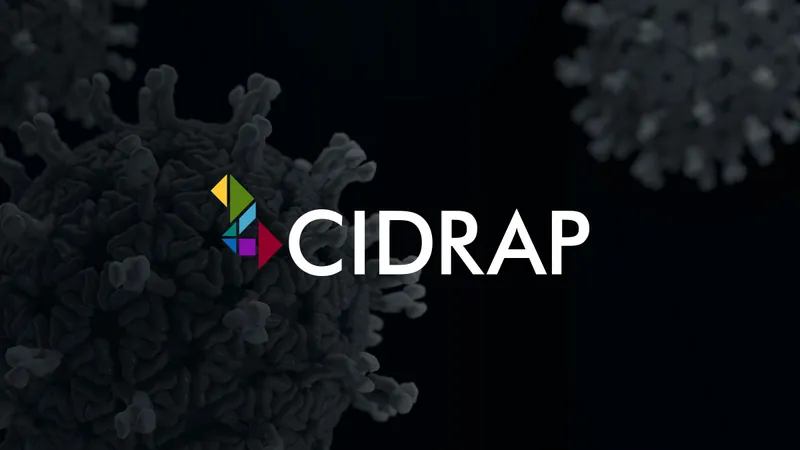
Alarming Study Reveals Antiseizure Medications Could Risk Children's Development - What Expecting Parents Must Know!
2024-11-15
Author: Jia
Introduction
A groundbreaking new study from Drexel University's Dornsife School of Public Health has raised significant concerns regarding the effects of antiseizure medications taken during pregnancy on children's neurodevelopment. Researchers analyzed data from over three million children in the UK and Sweden, including 17,495 who had been exposed to these medications in utero.
Key Findings
The findings indicate that children whose mothers took lamotrigine while pregnant do not face a heightened risk of developing autism or intellectual disabilities compared to children exposed to other antiseizure drugs. However, the study identified concerning links between three specific other medications—valproate, topiramate, and carbamazepine—and various neurodevelopmental issues.
Specific Risks Associated with Topiramate
Among the most alarming findings, the study revealed that children exposed to topiramate were 2.5 times more likely to be diagnosed with intellectual disability, increasing their risk to 2.1% by the age of 12. This suggests a notable shift in our understanding of the potential harms associated with certain antiseizure medications.
Expert Opinions
Dr. Brian K. Lee, a co-senior author of the study, emphasized the importance of careful monitoring of medication during pregnancy. "Our findings indicate that while some medications pose certain risks, lamotrigine appears to be a safer alternative. Active monitoring is essential to ensure the safety and efficacy of treatment during this critical period," he stated.
Contradictions with Earlier Studies
Contrary to some earlier studies, this research found no significant connection between topiramate or levetiracetam and ADHD diagnoses, regardless of the neurological condition of the mother. Researchers also encourage open discussions between patients and their healthcare providers. "The choice of treatment should be personalized," said Dr. Paul Madley-Dowd. "Diminishing the use of essential antiseizure medications could lead to harm for both the mother and the child."
Methodology
The study builds upon existing research linking the use of valproate, topiramate, and carbamazepine to neurodevelopmental conditions like autism and ADHD. The authors analyzed prescription data from the UK and self-reported medication use in Sweden, coupled with electronic health records, to draw their conclusions. A sibling analysis was employed to mitigate the influence of other variables such as genetic predispositions and severity of the mother's condition.
Recommendations for Expecting Parents
Researcher Viktor H. Ahlqvist echoed the importance of doctor-patient communication for expectant mothers. "If you're pregnant or planning to become pregnant, having a conversation with your physician about your medications could be vital in ensuring you receive the best care while minimizing risks to your child," he advised.
Conclusion
Despite the reassuring insights regarding lamotrigine, the authors stressed the need for further research across different countries to comprehensively evaluate the safety profiles of these antiseizure medications as treatment options continue to evolve. As these vital discussions continue, it becomes increasingly crucial for expecting parents to stay informed about the implications of medication during pregnancy.


 Brasil (PT)
Brasil (PT)
 Canada (EN)
Canada (EN)
 Chile (ES)
Chile (ES)
 España (ES)
España (ES)
 France (FR)
France (FR)
 Hong Kong (EN)
Hong Kong (EN)
 Italia (IT)
Italia (IT)
 日本 (JA)
日本 (JA)
 Magyarország (HU)
Magyarország (HU)
 Norge (NO)
Norge (NO)
 Polska (PL)
Polska (PL)
 Schweiz (DE)
Schweiz (DE)
 Singapore (EN)
Singapore (EN)
 Sverige (SV)
Sverige (SV)
 Suomi (FI)
Suomi (FI)
 Türkiye (TR)
Türkiye (TR)